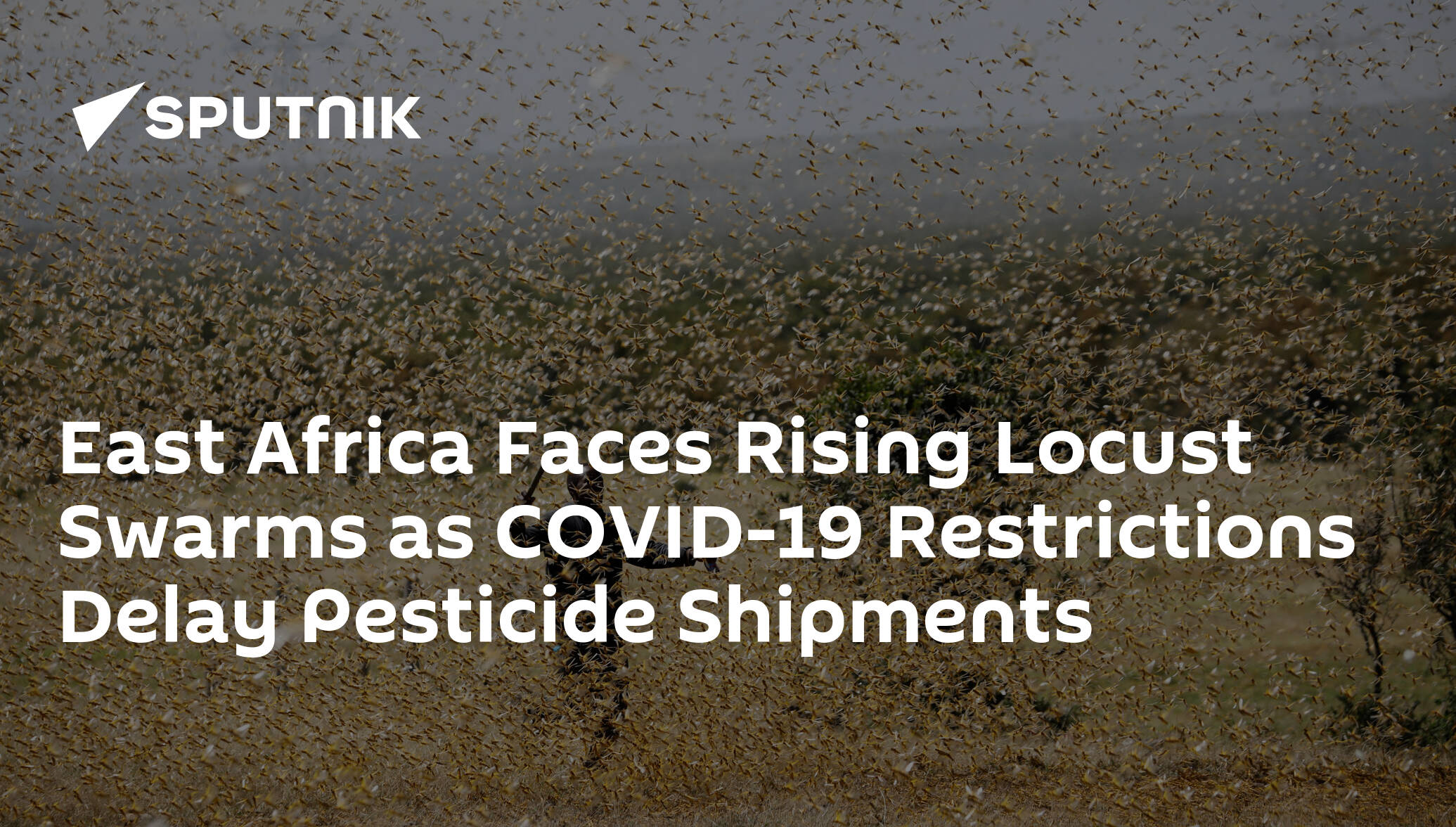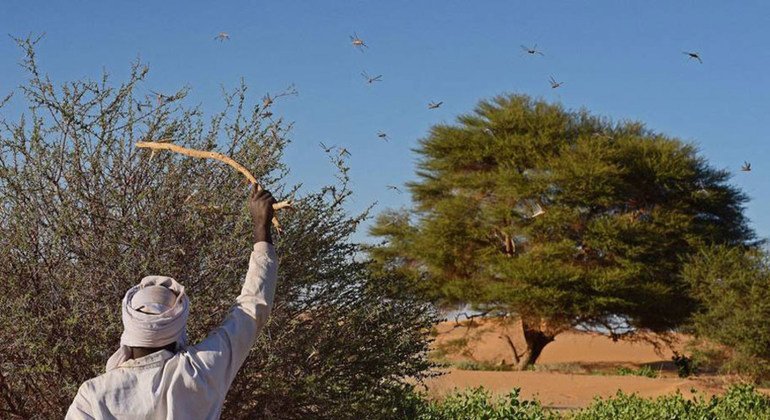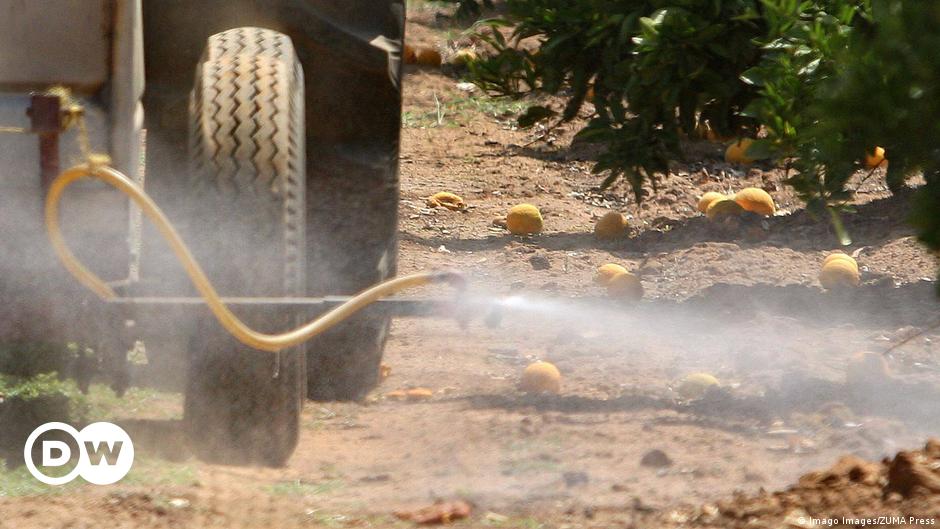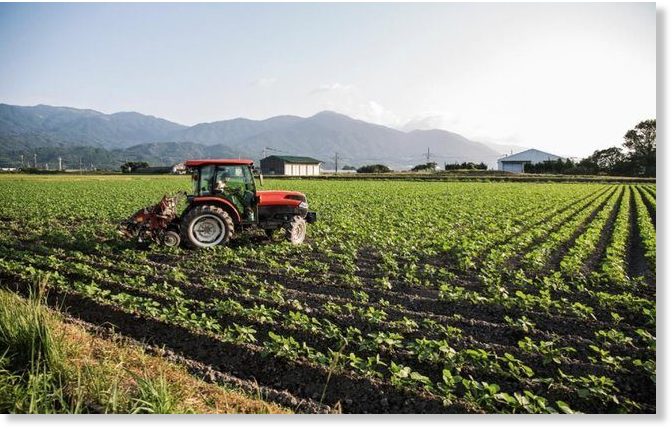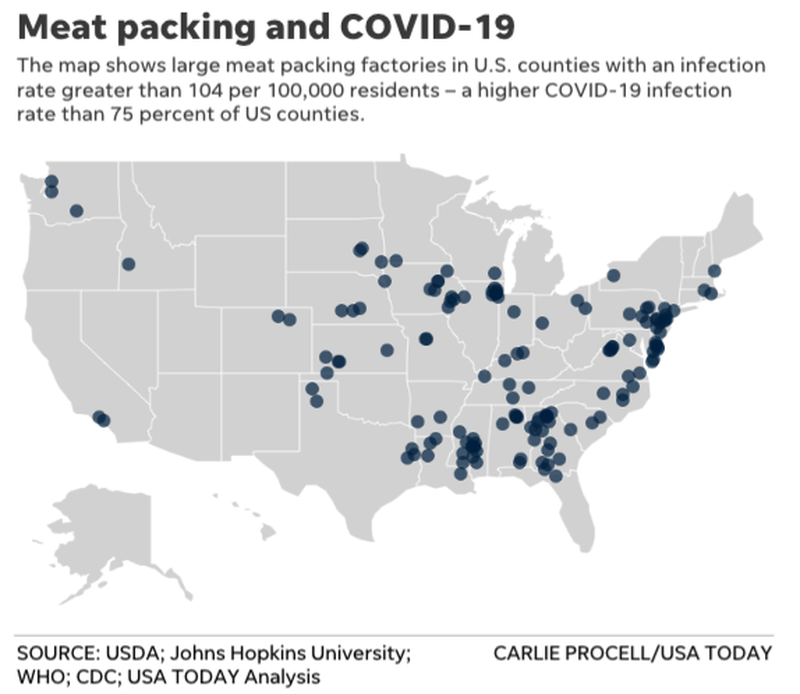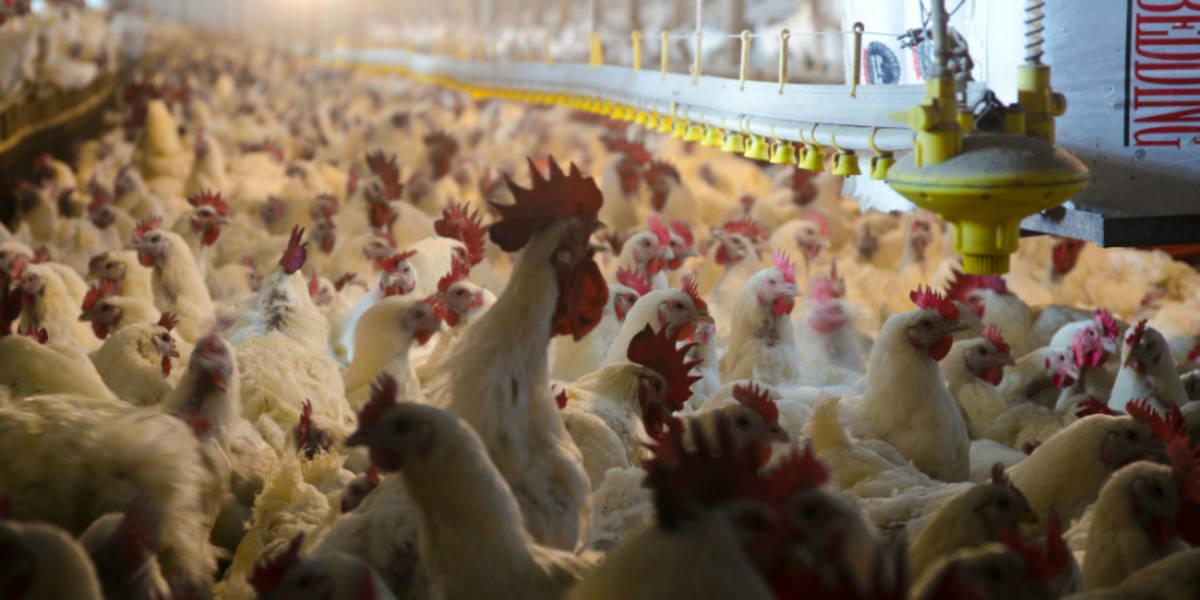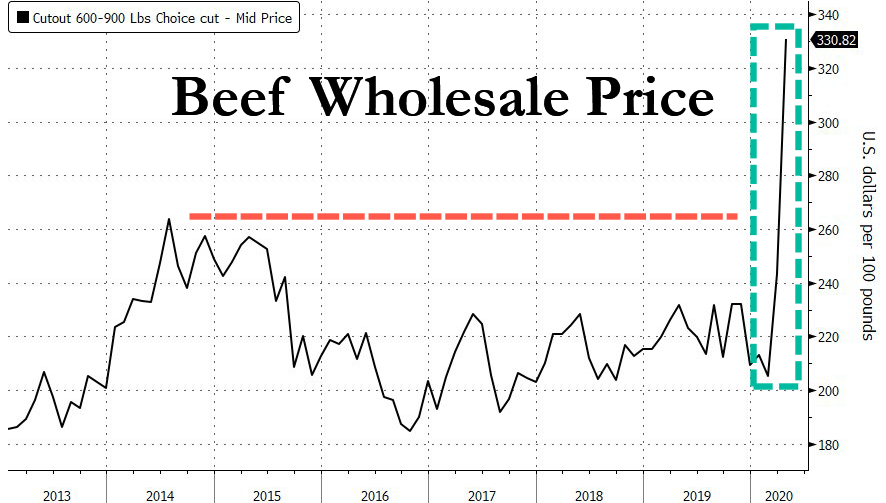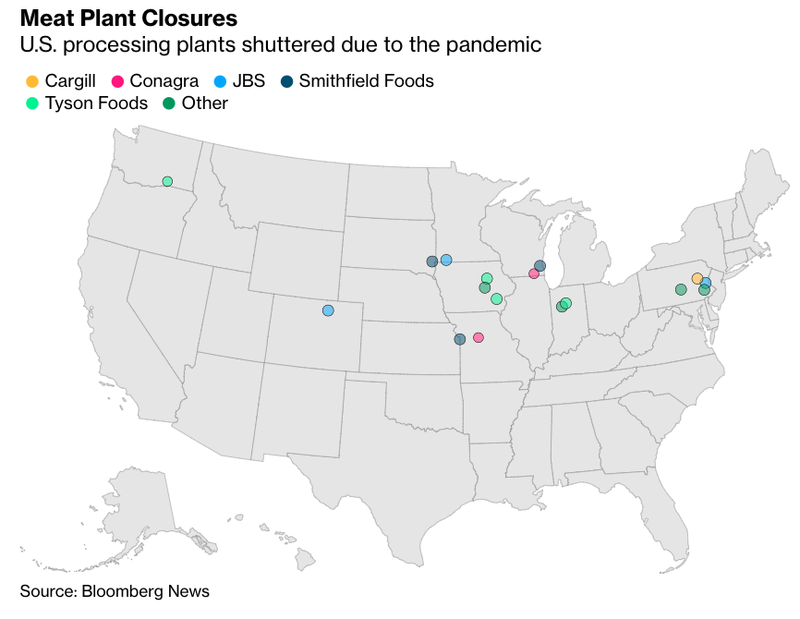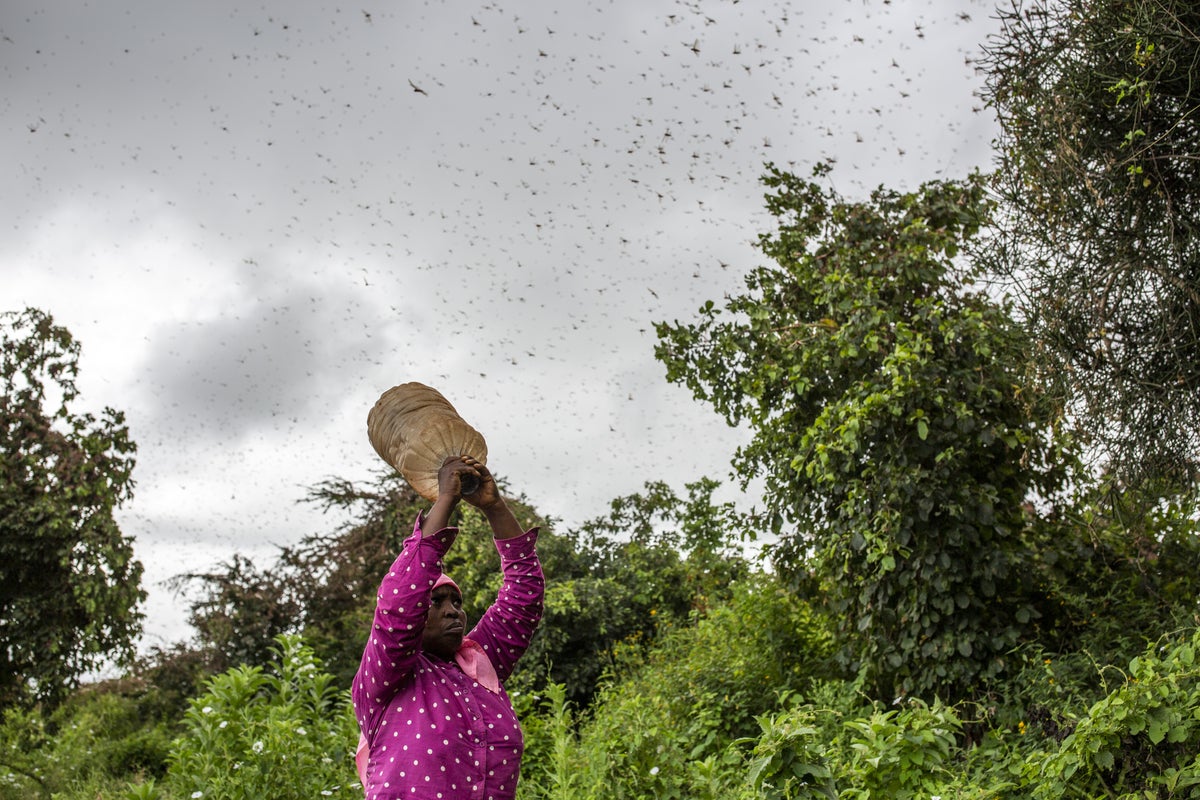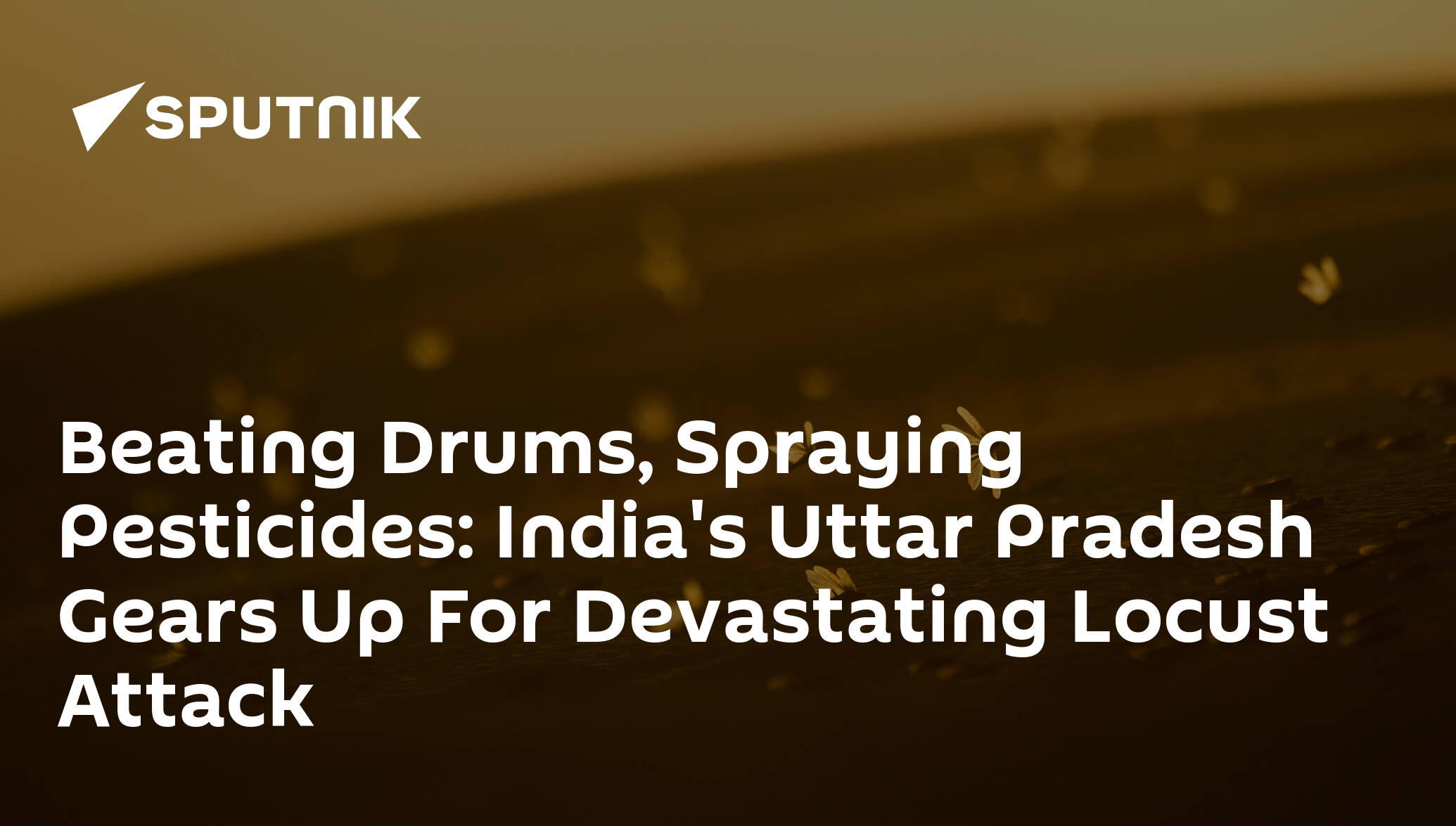I do not know if this post about desert locust swarms hurting crops and threatening the food supply in Middle Eastern and East African countries belongs in this thread, so please feel free to move it elsewhere. A few days ago, i stumbled on a few articles about desert locust swarms across these areas, which threaten the food supply and livelihoods of at least 25 million people. Now the UN Food and Agriculture Organization (FAO) has warned that the countries facing these swarms may have their food security further threatened, as
international shipments of pesticides have been delayed due to the COVID-19. The UN revealed last month that the desert locust, which can eat the equivalent of its body mass in fresh food daily, stands to endanger the food security of some 25 million people
due to favorable breeding conditions.
"If we don't have pesticides, our planes cannot fly and people cannot spray, and if we are not able to control these swarms, we will have big damage to crops."
'However, stocks of the repellents - particularly in Kenya - are now running low, and both shipping and production have been disrupted due to COVID-19 restrictions.'
The UN Food and Agriculture Organization (FAO) has warned that east African countries facing desert locust swarms may have their food security further threatened, as international shipments of pesticides have been delayed due to the...

sputniknews.com
Sustained efforts to contain East Africa’s worst invasion of desert locusts in decades are forging ahead, despite limits on the flow of personnel and equipment stemming from the global COVID-19 pandemic, the UN food agency said Friday.

news.un.org
Scientists are championing biopesticides and better monitoring — but heavy rains, war and a lack of funding have been hampering efforts to control the biggest outbreak in more than a quarter of a century.

www.nature.com
So i was wondering what types of pesticides are they using and what new research may be out there.
It seems they foremost use the chemical
Chlorpyrifos (
CPS), an
organophosphate pesticide used on crops, animals, and buildings, and in other settings, to kill a number of
pests, including insects and worms. It acts on the nervous systems of insects by inhibiting the
acetylcholinesterase enzyme. Chlorpyrifos was patented in 1966 by
Dow Chemical Company.
[6]
NB Just to compare, in the EU Chlorpyrifos was first licensed by EU states and the European Commission in 2005, despite health concerns having already arisen from animal tests at the time. What else is new, but then The European Commission in December 2019 said it would not renew a license for the insecticide chlorpyrifos after the European Union agency assessment.
The European Food Safety Authority (EFSA) said the risks of exposure to the chemical were of particular concern when it came to children's health. In August 2019, EFSA certified chlorpyrifos as being likely to cause mutations in genes and harm the nervous system.
The report cited "possible genotoxic effects as well as neurological effects during development."
"This means that no safe exposure level — or toxicological reference value — can be set for the substance."
Chlorpyrifos is already banned in Germany and six other EU countries, but it is still used on fruit plantations in much of southern Europe.
The European Commission has said use of the pesticide chlorpyrifos will be banned in the near future. The chemical treatment, used mainly for citrus fruits, has been linked with neurological problems.

www.dw.com
They also use an insect fungus (
Metarhizium sp.), a biopesticide. (
Why gigantic locust swarms are challenging governments and researchers)
About these two methods in use to combat these swarms, Associate Professor Manfred Hartbauer of the University of Graz in Austria has some interesting things to say:
'As a biologist who has specialised in insect research for the past 20 years, I believe current pest management regulations need to be revised. Currently, outbreaks are managed using chemical pesticides or an insect fungus (
Metarhizium sp.). Neither is a good option.
Chemical (synthetic) pesticides may be harmful to the environment and humans because of their
neurotoxic effects.'
'Insecticide fungi are applied as spores to kill the locusts. This
can take a long period of time and requires certain climate conditions, so it often won’t work as expected.'
'The agent of choice that’s being used in the current outbreak countries is an insecticide that relies on fungus spores to kill the locusts. The Food and Agriculture Organisation of the United Nations
ordered four tons, for US$76 million, to combat the current outbreak in East Africa.
The fungus is called
Metarhizium sp. and it forms spores inside locusts, with fatal consequences. It was created and tested during a 13-year French research programme called LUBILOSA. It is
found to infest locusts between about seven and 14 days after single treatment and it needs high humidity and moderate temperatures to work effectively. To my knowledge, few field studies are available that demonstrate the effect of this fungus on adult locusts.
Only one was performed in Nigeria in the LUBILOSA field studies.'
'Three major problems are associated with this fungus-based pesticide:
First of all, the LUBILOSA user handbook from 1999
instructs users to dissolve the spores in diesel or kerosene – also called “mineral oils”. But spraying large areas of land with this would have serious environmental consequences. Mineral oils are known to
contain toxins and carcinogens that can affect human health.
Another problem is that they don’t degrade easily and stay in the environment for a long period of time.
The second problem is that infestation is not fast enough to control large swarms and it needs specific environmental conditions to work. The fungus-based insecticide
takes about 14 days to affect adult locusts. To produce spores, it needs high humidity and moderate temperatures, more than 20°C at night and less than 38°C during the day.
In areas where locusts cause massive problems, these climate conditions are rarely found.
The third problem is that current Food and Agriculture Organisation regulations favour a fungus over other pesticides. This regulation indirectly prevents the development and registration of novel, more effective botanical pesticides.'
Mr Hartbauer has developed a method of linseed oil, combined with some essential oils, that is highly effective in killing two of the most problematic locust species:
Schistocerca gregaria and
Locusta migratoria. Both species are very destructive and are responsible for most outbreaks in Africa. This botanical pesticide can be sprayed with conventional spraying devices and kills adult locusts within 24 hours.
Botanical pesticides have
already proved successful against several insect pest species, but this is one of the first to target locust swarms effectively.
Currently, outbreaks are managed using chemical pesticides or an insect fungus. Neither is a good option.

theconversation.com
By the way, a major player in producing biopesticides is BASF (which incorporated Monsanto) (
Global biopesticides Market 2019: Key Players Bayer, Monsanto Bioag, BASF, Marrone Bio Innovations, Isagro, Valent Biosciences, Certis).
Apparently, no one or organization (are there not many NGOs located in these areas?) in charge of these locust swarm problems has heard about Hartbauer or his method and now the biopesticides (insect fungus) are not available in large quantities at short notice and the CPS supplies are running low and now Covid19 related flight and supply restrictions have entered the stage so we shall see how this will work out.... not good for the people in the lands i would think.

